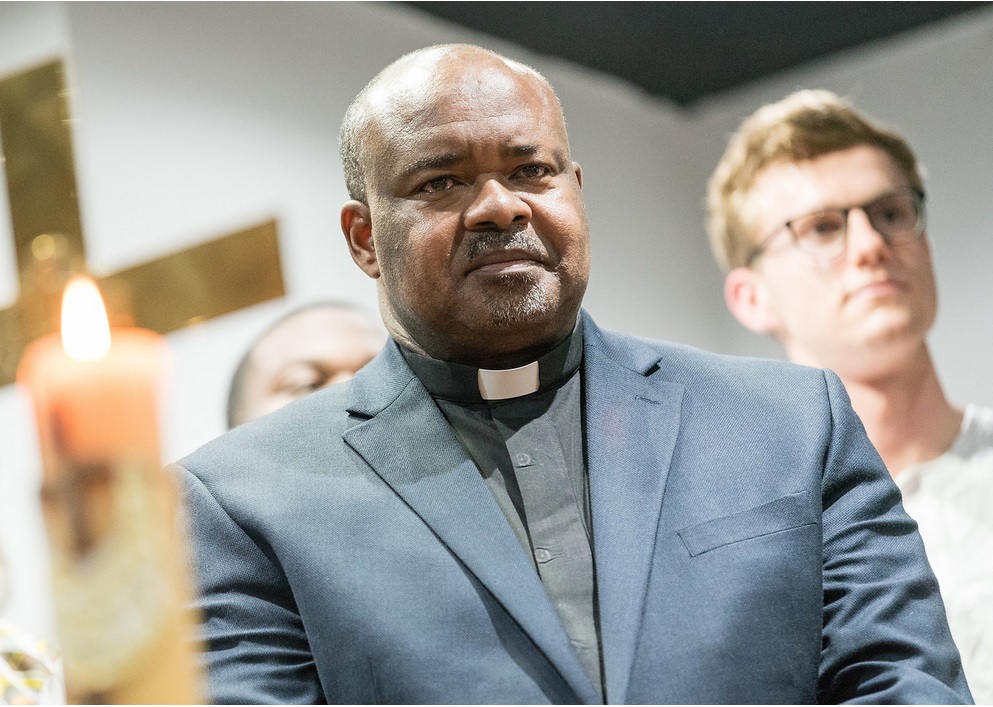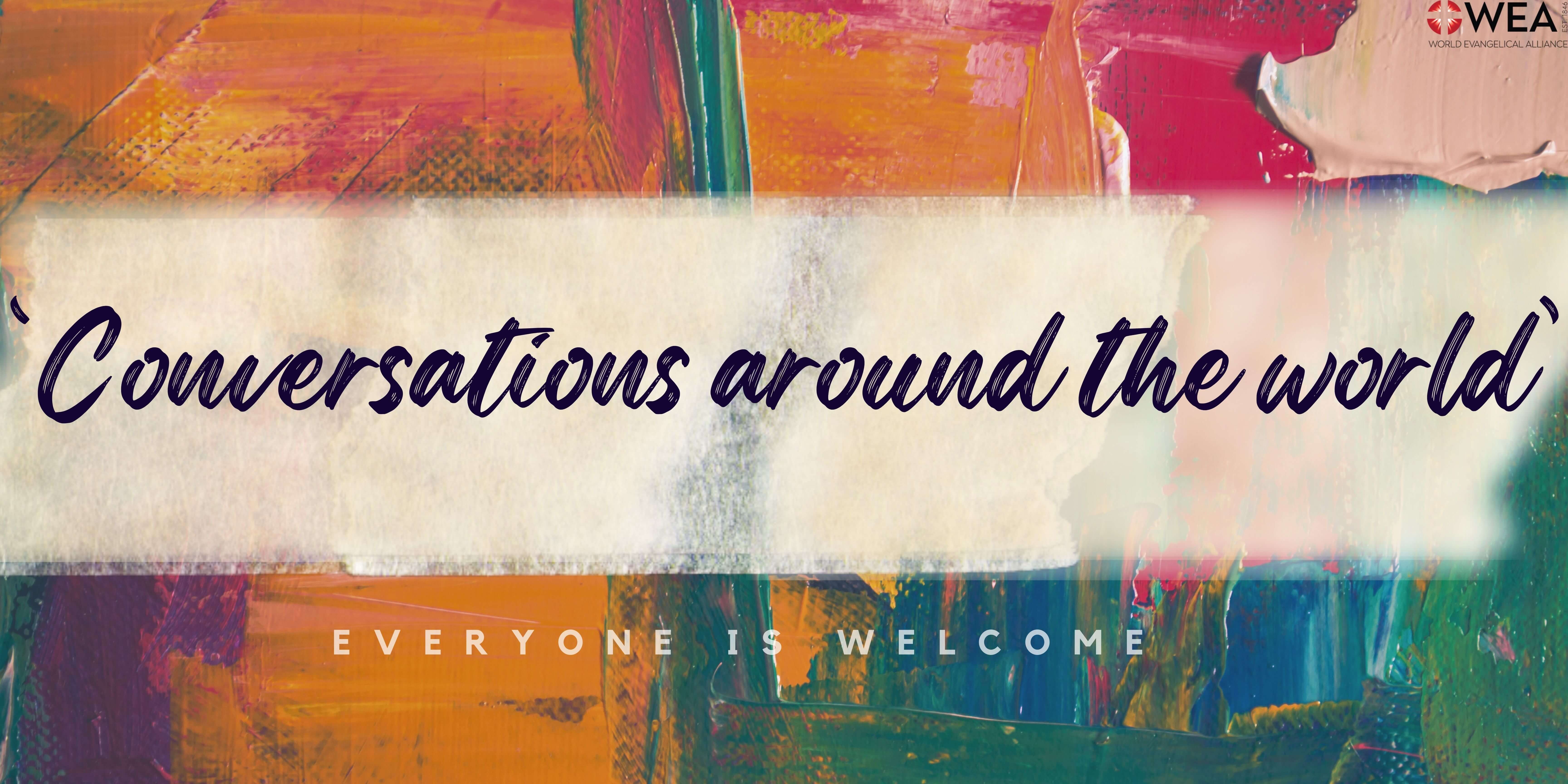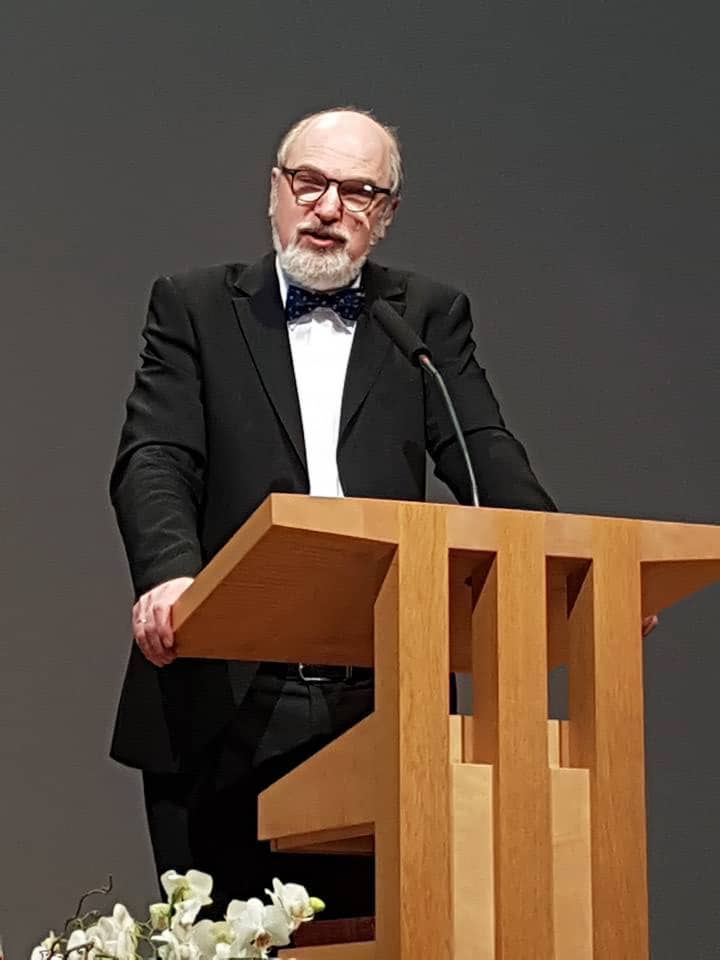Rev. Dr. Casely Essamuah, a Ghanaian-born evangelical pastor and the Secretary-elect of the Global Christian Forum (GCF), challenges his fellow evangelicals to embrace the opportunity to have fellowship with believers of other Christian traditions to strengthen their witness in Christ. In an interview with the World Evangelical Alliance’s (WEA) communications team during the third global gathering in Bogota, Colombia, in April, Dr. Essamuah shares what led him to become the next head of the GCF, what challenges and potential he sees in the quest to bring Christians together, and what he believes the future holds for the movement.

Rev. Dr. Casely Essamuah during the Commissioning Ceremony at the Global Christian Forum global gathering in Bogota, Colombia. (c) Albin Hillert, WCC
“The Global Christian Forum is a unique platform and indeed a gift that God has given to the Church at large.” Essamuah states. “The GCF offers us that unique space, very delicate, very treasured space, where Christians from all streams – from the Orthodox to the Catholics to the Mainline to the Pentecostals and Evangelicals, to the Independents – all of them can come together and sit around the tables and just do one of two things: pray together to the Lord of the Church and then also listen to each other’s faith stories.”
Faith stories are indeed key to every gathering the GCF convened. Shuffling participants together in diverse small groups allows personal relationships to be built across geographical and denominational boundaries, as they share their personal experiences and their perspectives on common challenges.
“As we do that, we build bridges with one another and we also reduce prejudices and stereotypes we have within the body of Christ,” Essamuah comments.
Himself an evangelical, he knows that not all evangelicals feel comfortable engaging with believers from other Christian traditions, mainly out of concerns that they might compromise their Biblical faith. However, Essamuah invites them to prayerfully reconsider their attitude.
“I would ask my evangelical brothers and sisters, if you have any doubts about the GCF, take it to the Lord in prayer,” he says. “If this is something on the heart of Jesus Christ, you want to be on the heart of Jesus Christ, you want to do things that are burdens on the heart of Jesus Christ. We always have reservations […], but most of it is based on ignorance and our stereotypes of them. We haven’t asked them to tell their stories or to pray with them. Sometimes they may have different words in describing their experience, but the bottom line, you see that Christ is the foundation of these churches, and their faith experiences.”
Established some twenty years ago by the Pontifical Council for Promoting Christian Unity, the World Council of Churches, the Pentecostal World Fellowship and the WEA, the GCF seeks to ‘provide space for exploration of expressions of Christian unity previously unavailable due to limited contact or past wounds.’ Its global gatherings as well as issue-focused consultations have helped stir up conversations that would have been unthinkable just a few decades earlier.
“The very fact that we were able to bring people together over all these years, it’s a great achievement,” Essamuah states. And while some consultations do produce papers, he emphasizes that “everyone rejoices that we’re doing our work best in relational collaborative gatherings, where relationships are really key. We’re not necessarily into producing documents but building relationships to build bridges, and trusting the Holy Spirit to determine next steps.”
Even though the GCF is very open in accepting Christian churches of diverse traditions and backgrounds, there are two required faith statements that any participant has to be able to affirm, Essamuah explains. “One of them is that you have to recognize and acknowledge Jesus Christ as fully divine and fully human. Very significant. Not all ‘churches’ are able to acknowledge that. The second thing is that you have to agree and acknowledge that God is trinitarian. He has revealed Himself to us as God the Father, God the Son, and God the Holy Spirit.”
What then about the more challenging and divisive issues? “We don’t avoid the things that divide us,” Essamuah assures. “But we don’t make them central to our conversations. Because we believe that each of us should be in a position to learn. […] How is that their cultural context has defined the way they “do” church and the way they follow Christ? And as you learn from it and as you realize that the way you are looking at things is deeply rooted also in your cultural context and not necessarily biblical, we correct each other. So, we let the things that unite us be the things that are paramount, and this is how we are moving forward and not the things that divide us.”
Asked about how he himself got involved in GCF, Essamuah shares that “a year ago, I didn’t know that the GCF existed. I actually got to know about it […] when someone approached me and said, would you consider praying about becoming the next Secretary?” Initially unsure about this organization he didn’t know, Essamuah got more and more excited as he dug into the purpose of the GCF.
“I prayed about it and I read and saw the vision of the GCF that it is really just a platform. It wants to be an open space for people to come together, to talk to one another, and by God’s grace, allowing the Holy Spirit to take them to the next level, I got convicted, I thought that this is something that I could give my life to,” he recalls. “But if you were to ask me what it is that qualifies me to be the Secretary of the GCF, I would say it is only one thing and one thing alone. I’m a sinner saved by grace and that is the best qualification that anyone can have. And so long as I am aware of that and I’m dependent on the Holy Spirit, then I can allow the Holy Spirit to use me to do what God wants to do with me.”
Looking into the future and considering the learnings from the third global gathering in Bogota, Essamuah shares that “one of the neatest things about the GCF is that we don’t have a two or three-year program. We really truly wait to hear from the Spirit of the Lord when we gather together.”
Some of the things he did hear already is a desire to reach out to the younger generation and allow them to grow up in an environment where sharing faith stories and relating to believers of other church traditions happens more easily. Essamuah also senses that there is still more need for repentance among church leaders: “We need to come to a place of repentance and humility to say that we have offended other people, or we have said evil things, things that have not been too positive about other churches, people who are our brothers and sisters in Christ, and that does not give our witness credibility.”
But reflecting on his overall experience of the gathering, he adds that hearing from other regions of the world is an important part as it both challenges and encourages others. “Your heart is broken for those who are suffering whether it’s in the Middle East, or whether it’s in Africa, those who are suffering because of their faith conviction in Jesus Christ.” Essamuah says. “But then you also get encouraged by the places where the Church is growing despite the physical poverty that people are going through, despite the deprivations that people are going through, the Spirit of God seems to be on the move and that is very encouraging.”
“For us, evangelicals, who are excited about and defined by the good news and the Great Commission, you will agree with me that it is too big for any one church or denomination to do it all alone, and it is equally too important and critical that we must do it with others,” Essamuah concludes. “That’s at the heart of the mandate of our evangelical faith as well as that of the GCF.”
For more information on the Global Christian Forum, visit globalchristianforum.org





Stay Connected